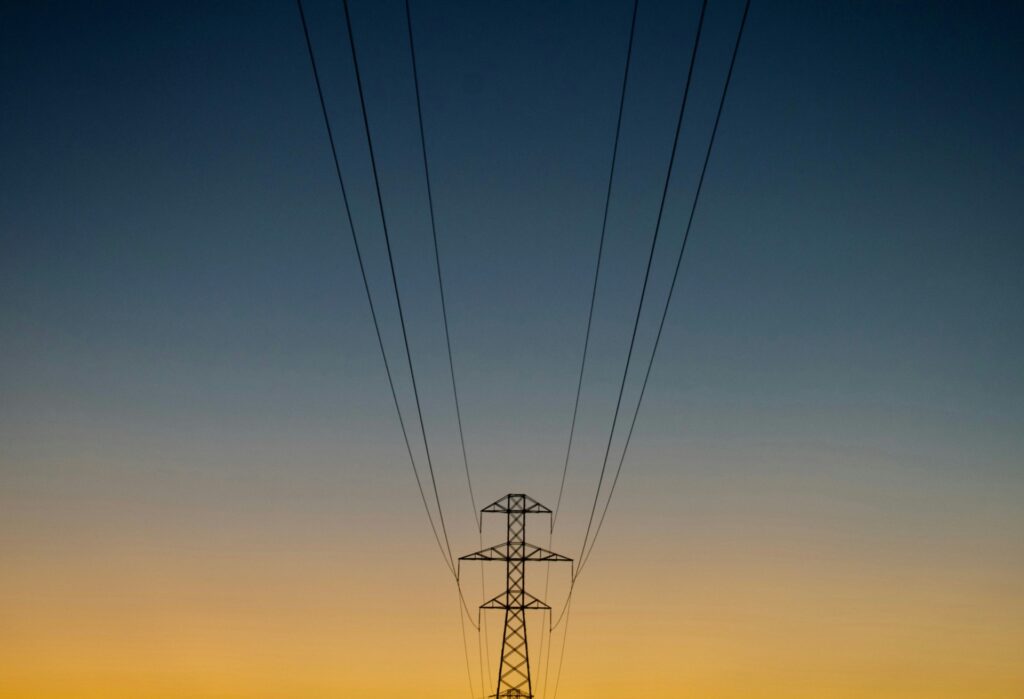Large energy users in Britain are set to face a sharp rise in non-commodity costs, according to a new forecast from energy analysts Cornwall Insight.
The report projects that these charges—fees added to energy bills beyond wholesale prices—could increase by an average of £450,000 a year by 2030 for many of the UK’s largest energy consumers.
The impact will fall most heavily on energy-intensive businesses not covered by government relief schemes, including major retailers, water utilities, and transport operators. The forecasted rise represents about 5% of current energy bills.
What are non-commodity charges?
Also known as third-party charges (TPCs), non-commodity charges are the costs on an energy bill that are separate from the actual price of the energy itself (the “commodity”). They fund the infrastructure for energy transmission and distribution, support government policies like renewable energy subsidies and carbon reduction schemes, and cover other third-party costs like balancing the grid.
Why are non-commodity costs increasing?
There are several factors pushing up non-commodity costs, including:
- Transmission network investment: As renewable energy generation increasingly comes from more remote regions, funding new transmission lines and strengthening the grid will become more essential via TNUoS charges. Cornwall Insight forecasts these will add around £100,000 from 2026 and rise towards £250,000 by 2030 on many business bills.
- New nuclear financing model: The introduction of a Nuclear Regulated Asset Base (RAB) Levy from 2026 is expected to contribute about £200,000 of the projected increase.
Additional costs are foreseen from schemes like discounts for consumers living near transmission infrastructure, and support for hydrogen production, though the exact impact of these is still under policy development.
Higher standing charges
The anticipated increase will predominantly be delivered through higher standing charges, which businesses will be unable to avoid through more flexible consumption.
While Ofgem has stated that it expects the transmission charge increases to be mitigated by the benefits of an expanded electricity transmission network, Cornwall Insight warns that these may take time to emerge and will be felt by billpayers. Likewise, the government has stated that investment in new nuclear capacity will ultimately yield benefits in terms of lower prices and improved energy security.
Relief & exemptions for energy-intensive industries
Large users in some energy-intensive sectors will receive help with some non-commodity costs via the Network Charging Compensation (NCC) scheme. Discounts may increase from the current level of around 60% to as much as 90% – the government has recently closed a consultation on implementing this uplift.
Smaller energy-intensive firms (e.g. automotive manufacturers) might see exemptions from certain charges — potentially reducing costs by up to 25% from 2027 onwards.
Sharing the cost
Dr Craig Lowrey, Principal Consultant at Cornwall Insight, emphasised that while clean energy transition investment is needed, the cost needs to be evenly spread:
“Every step we take towards a cleaner, more resilient energy system has a cost, and the reality is that money has to come from somewhere. Investment in new transmission lines, nuclear power, and backup capacity are not optional extras – they are the backbone of the UK’s future energy security. Without them, we risk higher volatility, and even greater long-term costs.
“But the way those costs fall matters. Right now, there is a real risk of a system where some businesses are protected while others shoulder the full weight of rising charges.”
Non-commodity charges are rising fast – don’t wait until they hit your bottom line.
Speak to the experts at Sustainable Energy First today to understand what these changes mean for your business and how to stay ahead of the cost curve.
Use the contact form below to get in touch now.
If this or any of our articles have interested you, get in touch for a chat with one of our experts at Sustainable Energy First for a no-obligation chat.

